Exactly one year ago Pam Job and Judith Wolton from Poetry Wivenhoe were impressed by Mountains of the Mind, an exhibition of work at the Minories Gallery in Colchester by my then 2nd year BA (Hons) Fine Art students of the Art School at Colchester Institute.
The show was in response to the words of the landscape writer Robert Macfarlane.
Taking this idea of art created from text, Pam and Judith then approached us to collaborate with them on a poetry anthology based broadly on reflections on the theme of 'conflict'.
Amazingly, one year later all the students work has been included alongside the poems they responded to in So Too Have The Doves Gone, a new poetry anthology that was launched at The Minories last week on Friday 7 March as part of the Essex Book Festival.
The current exhibition at the Minories Gallery Unreasonable Behaviour Part 1 (The Manoeuvre) presents the student’s responses to a series of poems reflecting on the general theme of conflict and inspired by the Wilfred Owen Memorial at Ors in Northern France.
The show was in response to the words of the landscape writer Robert Macfarlane.
Taking this idea of art created from text, Pam and Judith then approached us to collaborate with them on a poetry anthology based broadly on reflections on the theme of 'conflict'.
Amazingly, one year later all the students work has been included alongside the poems they responded to in So Too Have The Doves Gone, a new poetry anthology that was launched at The Minories last week on Friday 7 March as part of the Essex Book Festival.
The current exhibition at the Minories Gallery Unreasonable Behaviour Part 1 (The Manoeuvre) presents the student’s responses to a series of poems reflecting on the general theme of conflict and inspired by the Wilfred Owen Memorial at Ors in Northern France.
Bitter Fruit
We live with fear
but hope leaps ahead
as a deer chased by a hound.
We follow the clouded star of hope
and now in the nowhere, claustrophobic expanse
of an East European airport
my older brother, myself, and his friend,
three bitter fruit brought down to earth,*
seeking the spring of liberty,*
test out the passports bought at the cost
of two years labour
in dream-filled poppy fields.
We must travel beneath the surface of life
like a frog who takes to the water
to evade the snake ǂ that prides itself
on its venomous power.
We must move without disturbing the sleep
of the coiled serpent whose tongue is forked and jaws are wide.
Our souls live in the silence of our breath. ǂ
Fear lays its cold fingered touch on our skins
as we ride on the buffers between bouncing trucks;
steadying ourselves, numb, clasping a cable
while a screaming night express streams past.
We have no light, just the constant glint of steel
swishing and jolting below our feet.
Darkness is the candle ǂ that lights our hope,
non-existence will guarantee our life.
Under tarpaulins on a lorry I cuddle fear close
to keep bottled the fizzing soda of despair
which wants to explode in gulping cries
for my buried mother.
We take our chance at the backs of market stalls
to find a fallen peach, a rolled apple, a coin.
At each border we stick together.
The greatest wealth of this world is the company of friends.*
At Calais we sneak on to the axle of a coach,
Hearts pumping but lighter than the feathers of a dove,
blind moles scrabbling our way to England.
No matter how fast you run
Your shadow more than keeps up.
Sometimes it’s in front. ǂ
When authority orders ‘come out!’, my brother goes first
then I squeeze myself between coach and tarmac.
Reflected in the wide window of the police station
I see passengers on the coach gawping, wondering,
and in the eyes of more than one woman there
the look of my mother when she found me in trouble.
I sink to the ground,
My dreams drained away
with my tears.
Peter Sandberg
*Borrowed from the 20th century Dari poet Ustad Khalilullah Khalili; Bitter fruit falling upon the earth
ǂ Borrowed from the 13th century Dari poet Jalaluddin Rumi; Enough words?
Both were born in what is now Afghanistan.
We live with fear
but hope leaps ahead
as a deer chased by a hound.
We follow the clouded star of hope
and now in the nowhere, claustrophobic expanse
of an East European airport
my older brother, myself, and his friend,
three bitter fruit brought down to earth,*
seeking the spring of liberty,*
test out the passports bought at the cost
of two years labour
in dream-filled poppy fields.
We must travel beneath the surface of life
like a frog who takes to the water
to evade the snake ǂ that prides itself
on its venomous power.
We must move without disturbing the sleep
of the coiled serpent whose tongue is forked and jaws are wide.
Our souls live in the silence of our breath. ǂ
Fear lays its cold fingered touch on our skins
as we ride on the buffers between bouncing trucks;
steadying ourselves, numb, clasping a cable
while a screaming night express streams past.
We have no light, just the constant glint of steel
swishing and jolting below our feet.
Darkness is the candle ǂ that lights our hope,
non-existence will guarantee our life.
Under tarpaulins on a lorry I cuddle fear close
to keep bottled the fizzing soda of despair
which wants to explode in gulping cries
for my buried mother.
We take our chance at the backs of market stalls
to find a fallen peach, a rolled apple, a coin.
At each border we stick together.
The greatest wealth of this world is the company of friends.*
At Calais we sneak on to the axle of a coach,
Hearts pumping but lighter than the feathers of a dove,
blind moles scrabbling our way to England.
No matter how fast you run
Your shadow more than keeps up.
Sometimes it’s in front. ǂ
When authority orders ‘come out!’, my brother goes first
then I squeeze myself between coach and tarmac.
Reflected in the wide window of the police station
I see passengers on the coach gawping, wondering,
and in the eyes of more than one woman there
the look of my mother when she found me in trouble.
I sink to the ground,
My dreams drained away
with my tears.
Peter Sandberg
*Borrowed from the 20th century Dari poet Ustad Khalilullah Khalili; Bitter fruit falling upon the earth
ǂ Borrowed from the 13th century Dari poet Jalaluddin Rumi; Enough words?
Both were born in what is now Afghanistan.
The Bends
In the safety of a dining room in Kent
The glittering eyes of the Frenchwoman
Hold us in Thrall; they dare us not to listen.
She is in a concentration camp in the last days of the war.
Lying in the bunk she shares with a woman who’s already dead,
she is aware something has changed.
No voices.
No sound at all.
The place bulges with silence.
Softly she slithers to the floor,
shuffles to the unlocked door.
Clutching at the wooden jamb,
she quails at liberty in sunlight.
Her bare soles marry with the grains of grit and dust,
begin to question what this union might mean;
her dead-dull eyes are not yet ready
to engage with those of others that she meets,
the final four of thousands who were brought here.
Songbirds let out of a snare,
The women cautiously explore their freedom.
The kitchen draws them in.
On the table, glistening red, lies a side of beef.
They tear at it with bare hands, eat it raw.
Diana Hirst
Earth
Dry. Cracked.
The soles of their feet. The soil.
Heat shimmers and dust clogs
The cups, bowl, pores and
Settles as black sleep in children’s eyes.
She dreams of water, soft silver mirrors
Reservoirs surrounded by grass where cattle grow fat.
And anger, tight, clenched is felt like thunder rising from
the distant purple hills.
Petra McQueen
A Ballad of 2014
Shut up about the first world war
Men are still dying and don’t know what for
We can’t seek to get the point somehow
Shut up about it – end it now
Shut up about that world war one
It’s obvious we’ve not moved on
The last living soldier said it’s ‘organised murder’
So why celebrate it any further?
And the pity’s really not enough
Unless you try to stop that stuff
Mechanical death’s an enterprise zone
Click a button, deploy a drone
The ruling class is still pretending
The trust they broke still won’t need mending
Faking being one of the boys
In their celebratory noise
Nostalgia for sorrow means that you
Have no real feelings that are true
Listen, hear the peacenik say
Goodbye ‘Goodbye, Dolly Gray’
Death and horror are bad – we get it
And if war still goes on , you let it
Mostly insulting, sometimes a bore
Shut up about the first world war
Adrian May
'No End Of A Lesson' – from Part II
You have seen the photographs, of course –
All skulls and eyeballs, bodies like bundles of bones
Cackhandedly wrapped in skin?
No, you have not seen them.
You have seen pictures like them.
The Boers of the Transvaal and the Orange Free State
Could know nothing of Belsen or Ravensbrűck
Still to come, forty years down the road:
Only the designs of early British camp
Where mothers, wives, young children
In this and thirty others
Died off quickly in the heat at Christmas,
Or the freezing rains of the high veld in July –
Not forgetting, as we usually do, all the other camps
For the servants and labourers
Who were not white. They were dying too –
The invisibles in their thousands.
And what was it all for, this ‘regular sort of picnic’,
This final ‘gentleman’s war’, this ‘tea-time’ squabble
That became a bath of blood for the new century
To learn how to swim?
Gold, of course. Isn’t it always gold or
Diamonds of reserves of oil – whatever it takes
To bankroll a ravenous empire with the muzzles off?
Unless you want to say it’s competing gods,
Making us mad again and again,
In the same and different ways.
Rodney Pybus
You have seen the photographs, of course –
All skulls and eyeballs, bodies like bundles of bones
Cackhandedly wrapped in skin?
No, you have not seen them.
You have seen pictures like them.
The Boers of the Transvaal and the Orange Free State
Could know nothing of Belsen or Ravensbrűck
Still to come, forty years down the road:
Only the designs of early British camp
Where mothers, wives, young children
In this and thirty others
Died off quickly in the heat at Christmas,
Or the freezing rains of the high veld in July –
Not forgetting, as we usually do, all the other camps
For the servants and labourers
Who were not white. They were dying too –
The invisibles in their thousands.
And what was it all for, this ‘regular sort of picnic’,
This final ‘gentleman’s war’, this ‘tea-time’ squabble
That became a bath of blood for the new century
To learn how to swim?
Gold, of course. Isn’t it always gold or
Diamonds of reserves of oil – whatever it takes
To bankroll a ravenous empire with the muzzles off?
Unless you want to say it’s competing gods,
Making us mad again and again,
In the same and different ways.
Rodney Pybus
from The tale of Miss Potter and The Mushrooms
3. The Paper
Imagining what might have happened had Beatrix Potter been permitted to read her paper ‘On the Germination of the Spores of the Agaricineae’ at the Linnean Society.
You’re standing on a stage,
the hall reminding you of a field
after a summer downpour – scores
of pale bald heads are staring at you blankly.
Suddenly you feel
like the blue-coated hero of your tales –
you’ve been caught trespassing.
Somehow, your female form slipped through the doors
unseen, and now you’re trapped in a net of ignorance,
prejudice spreading through the room
like mould along a slice of bread. You clear your throat.
You give your lecture, wait for the applause:
someone coughs, the great clock ticks; silent mirth
hangs in the air, and dust motes dance like spores.
Alex Toms
Praxis
I have stood in the overgrown queues for bread.
I have waited in snow and ice and rain.
I have prayed for the dying and the dead.
I have ached for a son’s return in vain.
I have looked into the lifeless eyes
of the living, seen the strong insane.
I have heard – believed – too many lies.
A silence weaves each day and night,
ravels and knots our collective cries.
It begins with hunger, a bloodless fight,
The courage of mothers, daughters, wives,
The city domes and their dying light.
I have lost – I have lived – too many lives.
Karen Dennison
I have stood in the overgrown queues for bread.
I have waited in snow and ice and rain.
I have prayed for the dying and the dead.
I have ached for a son’s return in vain.
I have looked into the lifeless eyes
of the living, seen the strong insane.
I have heard – believed – too many lies.
A silence weaves each day and night,
ravels and knots our collective cries.
It begins with hunger, a bloodless fight,
The courage of mothers, daughters, wives,
The city domes and their dying light.
I have lost – I have lived – too many lives.
Karen Dennison
Rain
So gentle the rain beat down, as it does, it always has done,
not gentle rain that drops from heaven
but more a weapon, intimating deluge, spearing from
lead clouds in strikes that fall and penetrate
our raw, basic flesh. Our warm clothes are nothing.
This wind and rain dismiss such shields,
lifting our weak feet high, and bullying
us into walls. We become as useless as umbrellas.
I’d always stayed inside weather like this,
kept safe and dry until it pounded past like an army.
We are faced with our bare stupidity, our saturated skin.
I thought I had a place. We were stuck together.
Now we are just things hurled, a bit of me there,
A bit of you there, and we don’t know where we will land.
Joan Norlev Taylor
So gentle the rain beat down, as it does, it always has done,
not gentle rain that drops from heaven
but more a weapon, intimating deluge, spearing from
lead clouds in strikes that fall and penetrate
our raw, basic flesh. Our warm clothes are nothing.
This wind and rain dismiss such shields,
lifting our weak feet high, and bullying
us into walls. We become as useless as umbrellas.
I’d always stayed inside weather like this,
kept safe and dry until it pounded past like an army.
We are faced with our bare stupidity, our saturated skin.
I thought I had a place. We were stuck together.
Now we are just things hurled, a bit of me there,
A bit of you there, and we don’t know where we will land.
Joan Norlev Taylor
A Joinery
Against a stubborn nail a stubborn hammer pounds,
crushing steel in angles where a straighter steel stood.
Blow on blow on strident blow, this persecution sounds
echoes of its violence forever in the wood.
Great noises end with silence, the hammer’s put away,
But what is bent by savagery can never be made good.
Though violence passes finally, this monument will stay:
a nail firmly planted here, forever in the wood.
Oliver King
Against a stubborn nail a stubborn hammer pounds,
crushing steel in angles where a straighter steel stood.
Blow on blow on strident blow, this persecution sounds
echoes of its violence forever in the wood.
Great noises end with silence, the hammer’s put away,
But what is bent by savagery can never be made good.
Though violence passes finally, this monument will stay:
a nail firmly planted here, forever in the wood.
Oliver King
Landgirl’s song
for Dorothea Boggis Rolfe
I press my head into her flank.
She chomps and slobbers on cow-cake.
Milk-jets hiss and froth
into the pail.
Three days we had for our honeymoon.
On Tuesday the moon was full and we
were lifted on its arc,
its tidal pull.
Wednesday, breakfast. Rain in staves.
Too shy to meet the other’s eye,
our fingers touch by the tea cosy,
sweet peas in a jar.
On Thursday the sun broke through,
drawing steam from potato fields.
Hand in hand we strolled downstream
from Wormingford to Wissington
and lay in the graveyard by the church
where an ancient painted dragon lurks.
Knot-grass, hairbells,
clumsy bumble bees.
It’s dawn – the moon is full again.
The ache of his not being here. I’ve stripped
the cow, she saunters off. Blue silk
riffles the cooler’s ribs.
First the clink of empty churns
then a rumble within my breast.
Forty bombers thundering east,
heavy with their deadly load.
Brave boys those, so far from home!
But where is he? Tunisia, France?
As I shade my eyes and watch them go,
his child quickens for the very first time.
Anne Boileau
for Dorothea Boggis Rolfe
I press my head into her flank.
She chomps and slobbers on cow-cake.
Milk-jets hiss and froth
into the pail.
Three days we had for our honeymoon.
On Tuesday the moon was full and we
were lifted on its arc,
its tidal pull.
Wednesday, breakfast. Rain in staves.
Too shy to meet the other’s eye,
our fingers touch by the tea cosy,
sweet peas in a jar.
On Thursday the sun broke through,
drawing steam from potato fields.
Hand in hand we strolled downstream
from Wormingford to Wissington
and lay in the graveyard by the church
where an ancient painted dragon lurks.
Knot-grass, hairbells,
clumsy bumble bees.
It’s dawn – the moon is full again.
The ache of his not being here. I’ve stripped
the cow, she saunters off. Blue silk
riffles the cooler’s ribs.
First the clink of empty churns
then a rumble within my breast.
Forty bombers thundering east,
heavy with their deadly load.
Brave boys those, so far from home!
But where is he? Tunisia, France?
As I shade my eyes and watch them go,
his child quickens for the very first time.
Anne Boileau
No peace without war
Alone in bed with Hardy
far from the madding crowd
I sense before I see you lousing up
the symmetry of curlicues and loops
on meadowsweet- and tulip-papered walls.
O plain brown moth, you wall-creeper,
eye-sucker, ear-filler, solitude-killer,
rug-unraveller, biter of holes
in woollen clothes – how dare you flap
your raggedness inside my paraffin lamp?
Domestic pterodactyl, glass-chimney-clicker,
how can I stop you? I can stop watching you.
Pooff. I douse the flame, close my book
at Hardy’s profound ceiling of stars
and drift into a heaven under eyelids.
What makes you throw your horrid suicidal
body at the window? Clickety-thug
and thug again, you blasted hooligan,
some prehistoric memory of flame
must be knocking about in your insect brain.
My grandmother who rests in lucky peace
captured dozens of you with her bare fingers
insensitive to legs on skin or wings in throat
and dropped you in the woodstove. Hundreds of you.
I light the lamp, roll a Sunday supplement
into a weapon of moth destruction.
Ha-bloody-ha, you vermin, I’ll get you yet.
You’re stupid on the window, I calculate
a whack. Damn. You think you’re safe behind
the vine and flower curtain, not a chance.
You stumble to the tabletop, dumb loser.
I trap you under cosmopolitan prose.
Dead Moth, you bloodless little dope.
I smirk at your dust on the tablecloth,
nothing wet, merely a brush-away smudge.
Nancy Mattson
Alone in bed with Hardy
far from the madding crowd
I sense before I see you lousing up
the symmetry of curlicues and loops
on meadowsweet- and tulip-papered walls.
O plain brown moth, you wall-creeper,
eye-sucker, ear-filler, solitude-killer,
rug-unraveller, biter of holes
in woollen clothes – how dare you flap
your raggedness inside my paraffin lamp?
Domestic pterodactyl, glass-chimney-clicker,
how can I stop you? I can stop watching you.
Pooff. I douse the flame, close my book
at Hardy’s profound ceiling of stars
and drift into a heaven under eyelids.
What makes you throw your horrid suicidal
body at the window? Clickety-thug
and thug again, you blasted hooligan,
some prehistoric memory of flame
must be knocking about in your insect brain.
My grandmother who rests in lucky peace
captured dozens of you with her bare fingers
insensitive to legs on skin or wings in throat
and dropped you in the woodstove. Hundreds of you.
I light the lamp, roll a Sunday supplement
into a weapon of moth destruction.
Ha-bloody-ha, you vermin, I’ll get you yet.
You’re stupid on the window, I calculate
a whack. Damn. You think you’re safe behind
the vine and flower curtain, not a chance.
You stumble to the tabletop, dumb loser.
I trap you under cosmopolitan prose.
Dead Moth, you bloodless little dope.
I smirk at your dust on the tablecloth,
nothing wet, merely a brush-away smudge.
Nancy Mattson
How Things Are
He is shouting at her in the street,
Shut your Quasimodo mouth,
bitch. She protests, he goes on,
Don’t twist and change things.
I’m telling you how things are.
This woman in denim and flowery shoes
just stares.
He empties her purse, counts the coins,
Goes off. She says to the ground,
why don’t you believe me?
I want her to go
before he comes back.
But here he comes, smiling,
swinging four cans of Strongbow.
Suzanne Conway
He is shouting at her in the street,
Shut your Quasimodo mouth,
bitch. She protests, he goes on,
Don’t twist and change things.
I’m telling you how things are.
This woman in denim and flowery shoes
just stares.
He empties her purse, counts the coins,
Goes off. She says to the ground,
why don’t you believe me?
I want her to go
before he comes back.
But here he comes, smiling,
swinging four cans of Strongbow.
Suzanne Conway
A big thank you to Jane Badley, Jacqueline Bakowski, Ruth Fosker, Sarah Gray, Ruta Grigaite, Maria Medina Inglesias, Sarah Lidster, Judith Lunn, Arlene Machin, Kate Owen, Sharon Rawlinson and Abigail Ryman for letting me include their lovely art work.
This project would not have happened without the generous support and enthusiasm of Jane Frederick, my best colleague.
Cheers to Pam Job and Judith Wolton and the poets for allowing me to share their twelve poems on this blog from the newly published anthology:
Job P, Wolton J (2014) so too have the doves gone, Jardine Press Ltd, Wivenhoe
Also see review of book and exhibition by Dave Martin at InSuffolk.
Exhibition runs until 22.03.2014
at The Minories Gallery in Colchester
This project would not have happened without the generous support and enthusiasm of Jane Frederick, my best colleague.
Cheers to Pam Job and Judith Wolton and the poets for allowing me to share their twelve poems on this blog from the newly published anthology:
Job P, Wolton J (2014) so too have the doves gone, Jardine Press Ltd, Wivenhoe
Also see review of book and exhibition by Dave Martin at InSuffolk.
Exhibition runs until 22.03.2014
at The Minories Gallery in Colchester
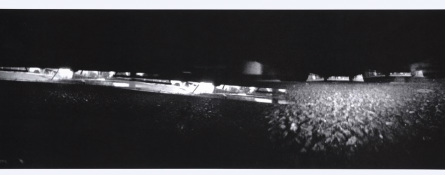
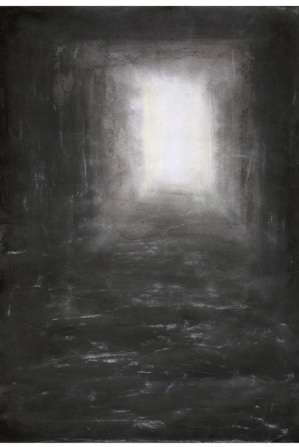
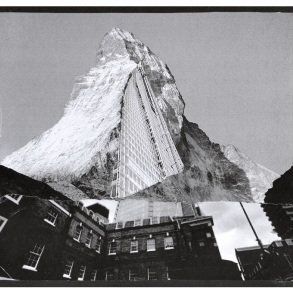
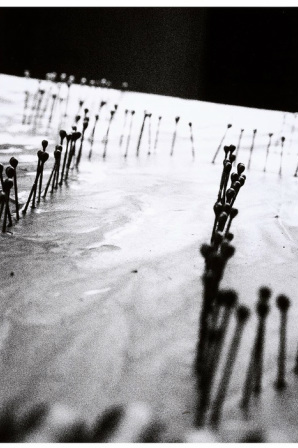
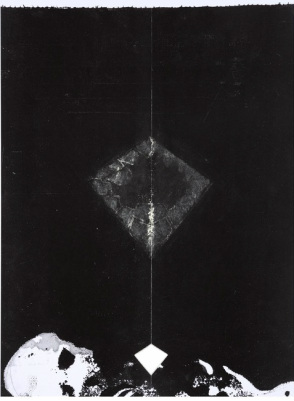
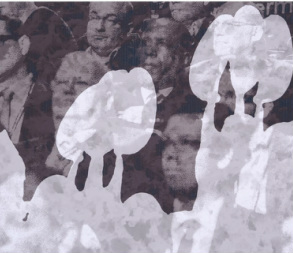
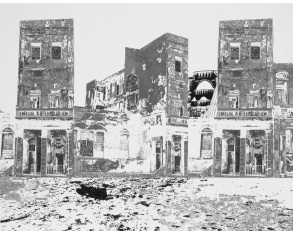
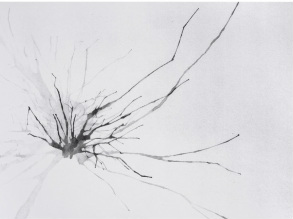
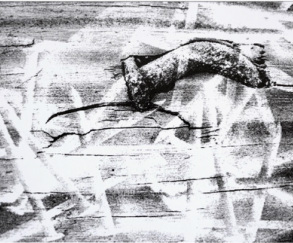
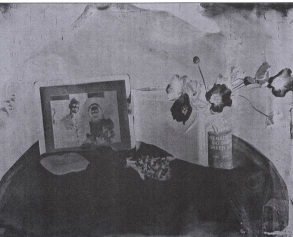
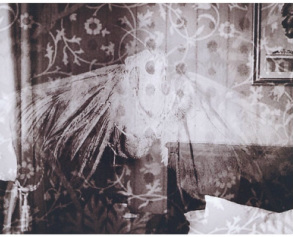
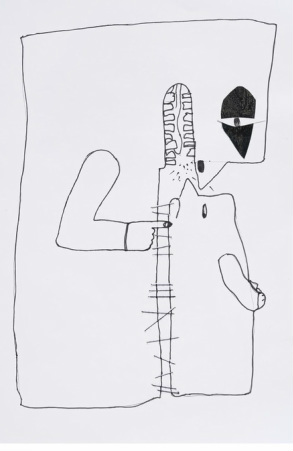
 RSS Feed
RSS Feed
